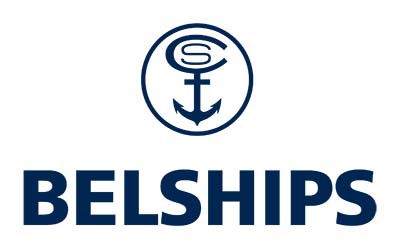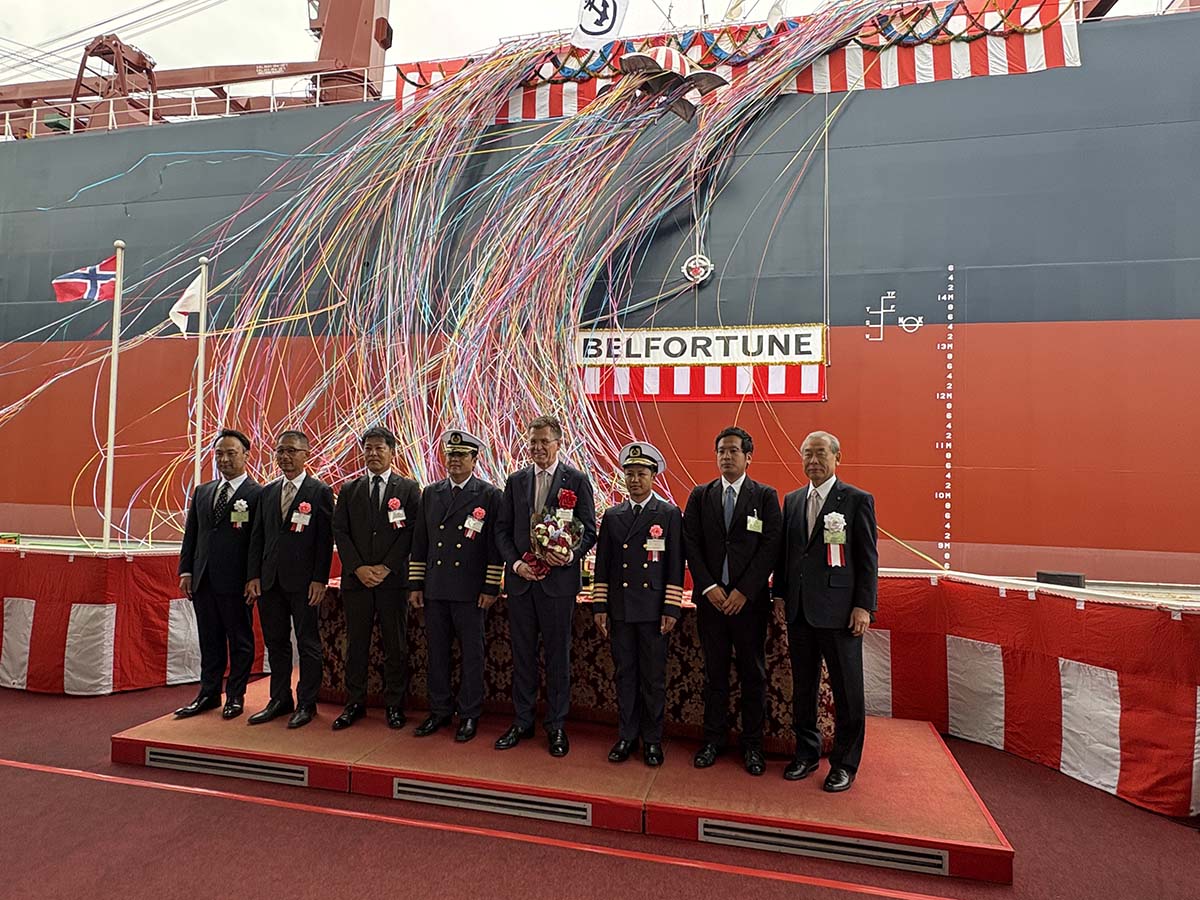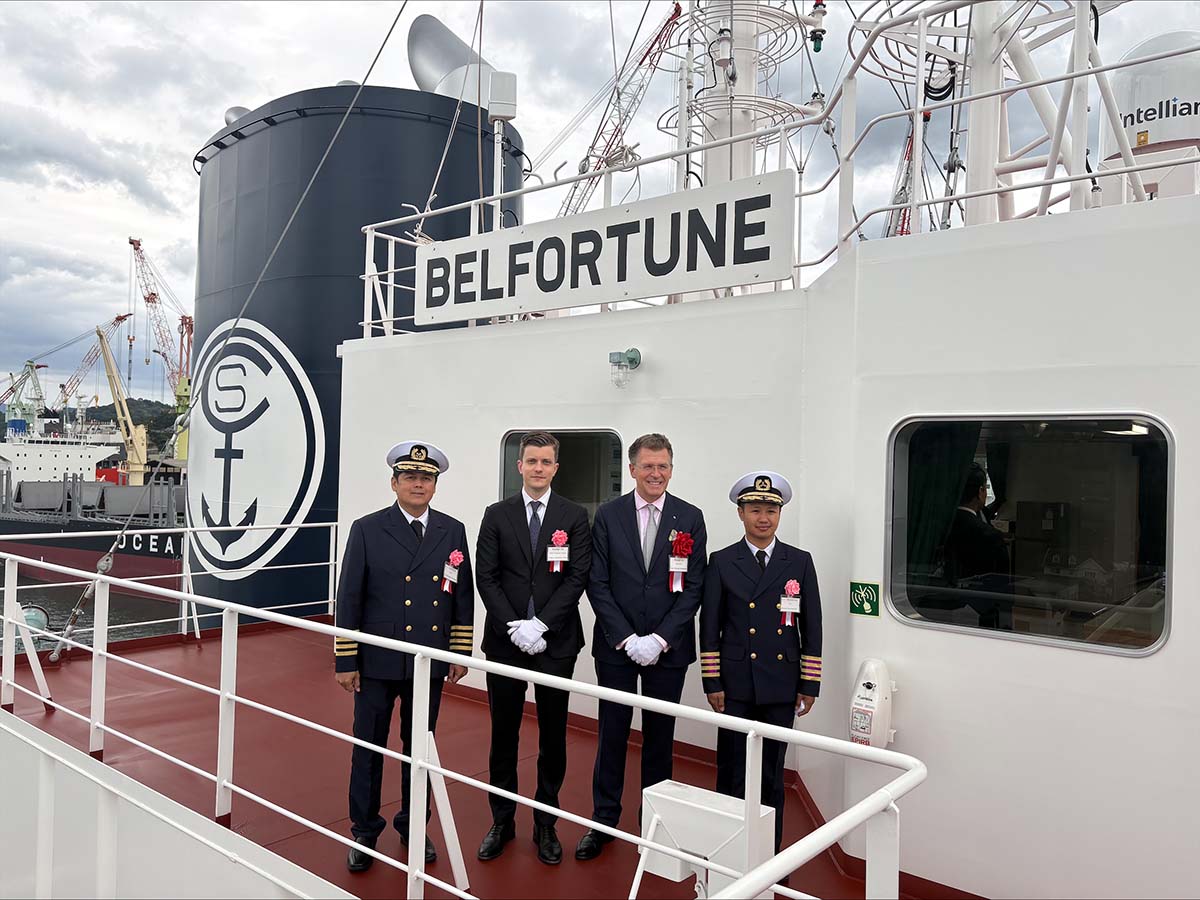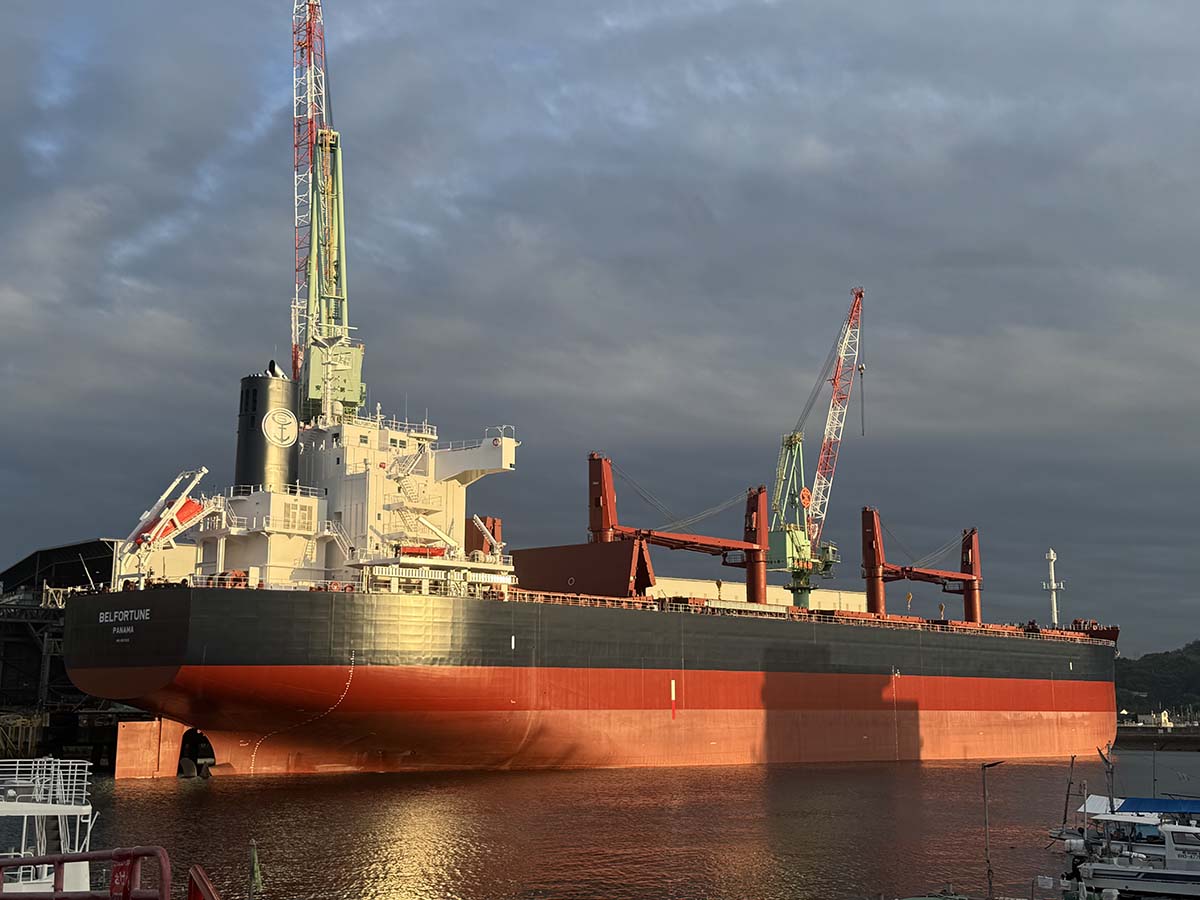Belships, a Norwegian dry bulk shipping company with more than 100 years of maritime history, is eyeing fleet expansion with Japanese shipyards while maintaining its strategic focus. For over 40 years the company has maintained a partnership with Japan that continues to anchor its strategy under new private ownership.
“It was clear to us that building on the company’s long history and long track record in the Japanese market would be a cornerstone of Belships’ strategy going forward,” CEO Ivar Hansson Myklebust said.
Since 2019, Belships has expanded and modernized its fleet through close collaboration with key partners across Japan’s maritime ecosystem, from shipbuilders and financiers to operators.
This year, Belships became privately owned through EnTrust Global’s Blue Ocean Funds and the F. Laeisz Group.
“The new owners based their investment in Belships on the excellent market position of the company within the dry bulk segment,” Myklebust explained. “The change of ownership does not come with a change in strategy or direction.”
With a new board and strong financial backing, Belships aims to strengthen its market position. “You should not expect any major changes,” Myklebust added.
As the operational and commercial challenges with alternative fuels are gradually solved, we are confident that the Japanese shipbuilding community will have the best technical solutions available for customers like Belships.
Ivar Hansson Myklebust, Chief Executive Officer of Belships
At the heart of Belships’ expansion are 12 Ultramax new builds under construction at Japanese shipyards, including Imabari Shipbuilding. Deliveries are set to take place between 2025 and 2028 and got underway last month in Imabari with the successful handover of the Belfortune — the first of many new vessels that will reinforce the company’s commitment to Japanese partnership. Belships operates one of the largest and youngest Ultramax fleets globally, recognized by first-class cargo owners and operators.
“The Japanese-built vessels are very commercially attractive from the customers’ point of view and offer us as owners consistency and reliability from an operational quality perspective,” Myklebust said. “We will do our utmost to retain and expand our existing business relations in Japan.”
As the maritime industry moves toward decarbonization, Myklebust highlighted Japan’s pioneering role in fuel-efficient ship design. Belships’ modern fleet already offers some of the most fuel-efficient and low-emission options using conventional fuels. Existing vessels can run on biofuels, and new builds will have flexibility to use more alternative fuels.
However, alternative fuel availability poses difficulties for smaller dry bulk vessels calling at ports where fuel logistics remain underdeveloped.
“As the operational and commercial challenges with alternative fuels are gradually solved, we are confident that the Japanese shipbuilding community will have the best technical solutions available for customers like Belships,” Myklebust concluded.







